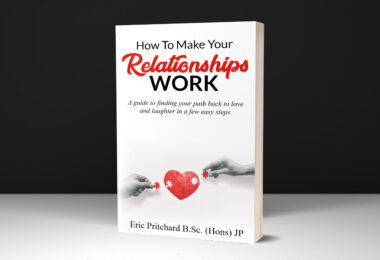As the classic 1960’s song goes, Breaking Up is Hard to Do.
We plan pretty comprehensively for our weddings but when 42% of marriages break down, shouldn’t we put a similar level of care and effort into separating? I’m not talking about throwing a divorce party, although these do seem to be gaining popularity. What I mean is coming up with a separation or divorce ‘action plan’ to be underpinned by effective communication and the need to put children first.
Conflicting Reports
A plan for getting divorced? I hear you ask – whatever next? Well, whilst it may not be as fun as planning a wedding, the ironic thing is that you’re likely to use almost as many suppliers! These could range from solicitors and financial advisors, to relationship counsellors and mediators. For dads, agencies offering support around custody may also be particularly relevant.
I’d like to say that navigating the separation support system is straightforward and relatively painless but as Relate’s new report, Breaking Up is Hard to Do, found, there’s currently no single clear place for separating families to go for support. Another issue is that the different agencies aren’t necessarily working together or sign-posting to one another effectively.
Of course, it is possible to work things out yourself, but it can take a lot of digging and being pushed from pillar to post. Some people going through separation and divorce need less support and remain relatively unscathed, but it’s often the most vulnerable families who struggle. The result can be newly single parents getting trapped in a cycle of conflict and court cases, which can lead to damaging outcomes for children.
Although recommendations have been made to make the system easier to access in future and Relate’s report has received a positive response from the Government, if you’re currently going through divorce or separation, there are plenty of things you can do to make the situation less painful.
Out of Your System
One thing you’ll need to consider early on is the large number of people you’ll need to communicate with in a personal capacity including friends, family, your children and not least, your soon to be ex-partner.
Speaking to your ex-partner as soon as possible about what you both want from the separation is a good place to start. Involve them in your plan if you can and as part of this, agree a line with them on why you are separating. By agreeing a line and sticking to it, you help to avoid attributing blame and escalating conflict.
It’s a shame that our divorce system remains fault-based, when the most desirable option would probably be to take a leaf out of Coldplay’s Chris Martin’s book and ‘consciously uncouple’. If you’re on speaking terms with your ex-partner, again, why not sit down and agree what you’re going to put down as the grounds for your divorce? This may help to reduce conflict further down the line.
Talking Sense
Letting children know clearly what’s happening is particularly important – as well as reassuring them that it’s not their fault (children can have a tendency to blame themselves). They could react in a number of ways including becoming withdrawn, tears, anger or apparent indifference. Remember that a child may appear outwardly to take the news well, but it’s likely they’ll have strong feelings about it.
You may want to consider counselling for your child too, which can be accessed through Relate and other organisations. We know how hard divorce and separation can be for children, but you may feel reassured by a recent survey from family lawyers’ organisation, Resolution. They found that 82% of young people said that, despite their feelings at the time, it was ultimately better that their parents divorced rather than stay together unhappily.
Tools of the Trade
When it comes to information, there are some useful resources already out there. These include the Cafcass Parenting Plan, which can help parents make decisions in the best interests of their children, and Sorting Out Separation, an easy-to-use web app that contains many links about issues related to separation, including some of the money questions. Or, if you are having problems accessing the right support, you can always talk to Relate – who offer everything from counselling and mediation, to Separated Parents Information Programme (SPIP) courses.
Going through a divorce or separation is never going to be easy, but many parents do go on to form a positive co-parenting relationships with their ex-partner. Communicating effectively, resolving issues out of court where possible and involving your children in decisions is likely to result in the best outcomes.
Arabella Russell has been a Relate counsellor for five years and also runs her own practice.


![[Image - Erik Sandybaev]](https://www.fqmagazine.co.uk/wp-content/uploads/2016/01/f63fb9fc1888bac2143cb5d1de3bea0f.jpg)





